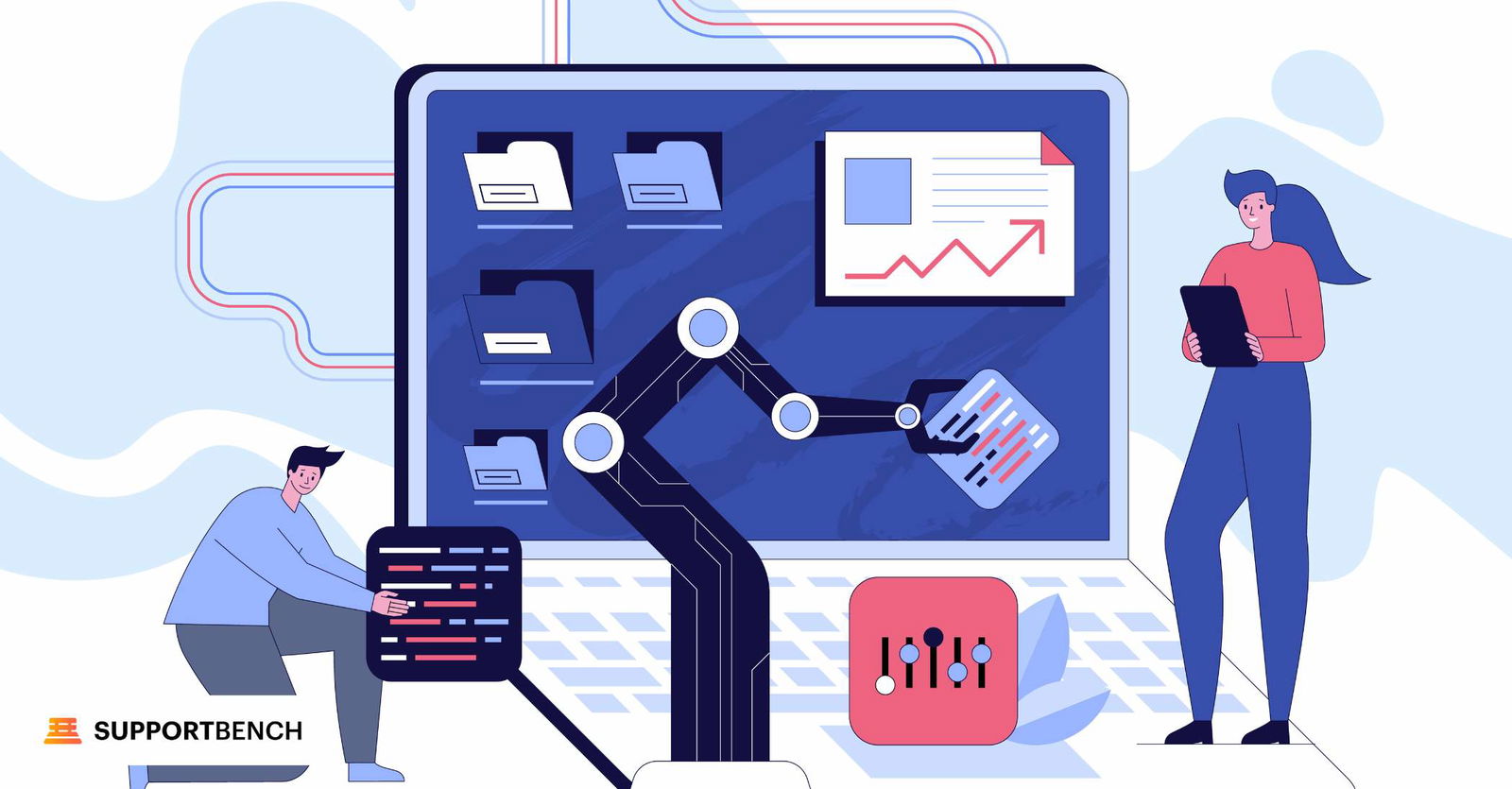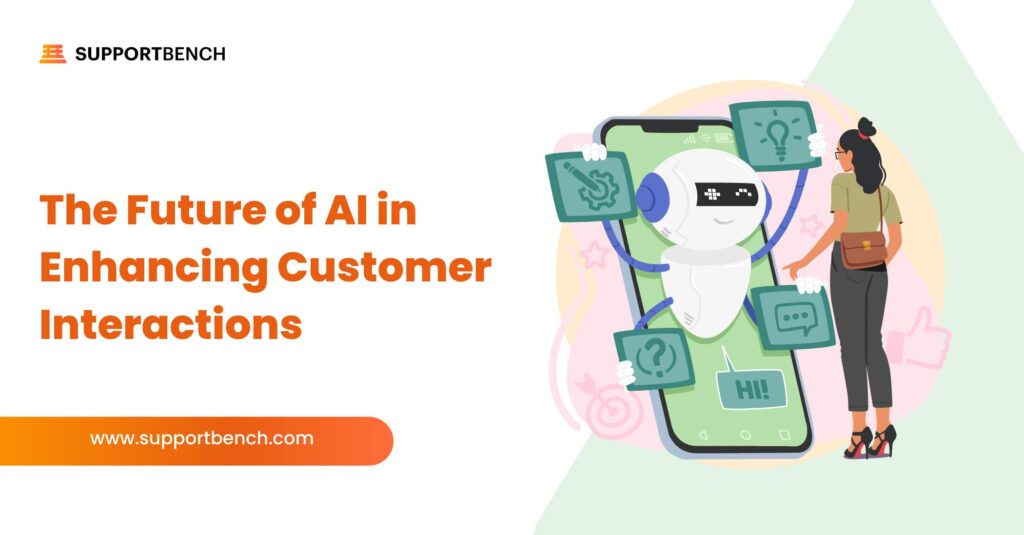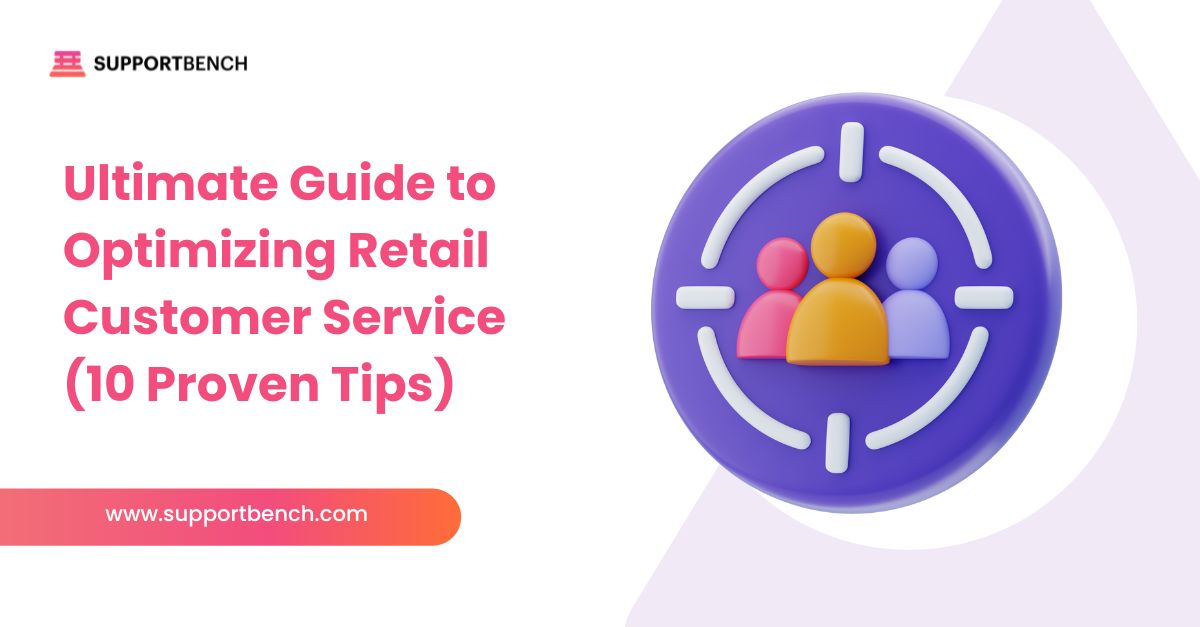In 2025, Artificial Intelligence (AI) is revolutionizing customer service by enhancing efficiency and delivering hyper-personalized experiences. With tools like chatbots, virtual assistants, predictive analytics, and voice recognition, businesses are reshaping how they engage with customers.
This blog explores the evolving role of AI in customer interactions, uncovering key trends, innovative applications, and actionable strategies driving the future of customer service.
Whether you’re a business executive seeking to integrate AI or a tech enthusiast following the latest advancements, this guide offers valuable insights into the transformative power of AI.
State of AI in Customer Interactions in 2025
Artificial Intelligence (AI) is revolutionizing customer service, enabling businesses to improve efficiency and enhance satisfaction. Industry reports reveal AI’s transformative impact across B2B and B2C sectors, reshaping support functions and customer engagement.
AI Adoption
AI and automation are integral to modern customer service strategies, with 79% of customer service specialists recognizing their importance. Currently, 56% of B2B and 54% of B2C businesses leverage AI to enhance service efficiency.
Time and Task Efficiency
AI allows professionals to focus on more fulfilling tasks, with 71% reporting increased job satisfaction and 78% acknowledging improved role efficiency due to automation.
Customer Engagement
AI is redefining how businesses engage with customers:
- 84% of executives use AI for client interactions.
- 88% agree that automation ensures faster resolutions, boosting loyalty.
- 91% of businesses view AI positively for engagement, and 96% expect generative AI to elevate customer interactions further.
Key Benefits of AI in Customer Service
- 24/7 Availability: AI enables round-the-clock support, with 36% of experts highlighting its role in improving accessibility.
- Faster Response Times: 30% of businesses report reduced response times, while 25% note improved query resolution effectiveness.
- Personalization: 64% recognize AI-driven personalization as a critical factor in enhancing customer experiences.
- Automation: AI-powered chatbots and helpdesk tools automate up to 22% of service desk tickets, resolving issues without human intervention.
AI-Driven Personalization: Revolutionizing Customer Experiences
As customer expectations grow, businesses increasingly rely on AI to deliver seamless, personalized experiences. By 2025, AI-driven customer service will make personalization indispensable for fostering strong customer relationships and loyalty.

What are the benefits of AI in customer interactions?
AI creates hyper-personalized experiences beyond basic segmentation by leveraging data-driven insights. It can analyze customer behaviour, preferences, and past interactions to deliver tailored solutions, predict needs, and enhance engagement.
- Predictive Analytics: Integrated into AI customer support solutions, AI anticipates customer needs, proactively resolves issues, and suggests relevant products, reducing friction in interactions.
- Enhanced Chatbots: AI-powered chatbots greet customers by name, recommend products based on previous purchases, and respond naturally using tone-adaptive voice recognition tools.
- Real-Time Adaptation: AI adjusts interactions dynamically, offering recommendations that align with customers’ changing preferences and creating a personalized touch at every step.
Benefits of AI-Powered Personalization
- Tailored Support: Deliver solutions informed by historical data, behaviour, and preferences.
- Proactive Engagement: Use predictive analytics to resolve issues before they arise and anticipate customer needs.
- Dynamic Adaptation: Continuously adapt to real-time preferences, improving the customer experience with every interaction.
- Deeper Connections: Personalization increases engagement by providing relevant products, services, and content, fostering stronger relationships and loyalty.
Advanced AI Chatbots and Virtual Assistants: Transforming Customer Support
By 2025, AI chatbots and virtual assistants are evolving into sophisticated tools capable of handling complex customer queries, significantly enhancing experiences across industries.
Modern AI chatbots leverage advanced technologies like predictive analytics, natural language processing (NLP), and emotion recognition to:
- Understand context and tone: Analyze the intent behind queries to provide accurate solutions.
- Improve resolution times: Deliver quick and precise responses, even for complex problems, boosting overall satisfaction.
Expanding the Role of Virtual Assistants
AI-powered virtual assistants go beyond answering questions by performing tasks like:
- Handling multi-step inquiries.
- Booking appointments and processing refunds.
- Guiding customers through technical troubleshooting.
These assistants integrate seamlessly with tools such as CRM systems, AI call centers, and knowledge bases, ensuring smooth transitions to human agents when needed.
Can AI replace human customer service agents?
While AI excels at managing routine tasks, human agents remain indispensable for complex issues requiring empathy and critical thinking.
By 2025, AI will handle repetitive queries while escalating intricate problems to human agents, allowing them to focus on tasks that demand emotional intelligence and nuanced judgment.

Predictive Analytics for Proactive Support: Anticipating Customer Needs
Predictive analytics is one of the most transformative applications of AI in customer service, enabling businesses to anticipate needs and deliver proactive support. By analyzing past interactions, behaviours, and patterns, AI can identify potential issues and opportunities before they arise, ensuring seamless and personalized customer experiences.
How Predictive Analytics Transforms Customer Service
- Proactive Problem Solving: AI predicts when customers may face issues, allowing businesses to offer solutions or preventive measures ahead of time, reducing friction and enhancing satisfaction.
- Churn Prevention: By identifying customers nearing frustration or at risk of churning, companies can proactively engage with personalized assistance or incentives to improve retention.
- Tailored Recommendations: Predictive analytics enables AI to suggest upgrades or cross-sell opportunities based on customer preferences, boosting revenue and loyalty.
How AI is Changing Customer Service in 2025
In 2025, AI is revolutionizing customer service by making it more data-driven and personalized. With tools like advanced analytics & insights, businesses can monitor key metrics—response times, resolution rates, and customer satisfaction—to optimize workflows and improve team performance.
Why It Matters:
AI-driven predictive analytics goes beyond identifying issues; it anticipates customer preferences and delivers tailored solutions in real time, fostering trust and operational efficiency. For example:
- A customer frequently using a specific feature might receive an AI-generated suggestion for an upgrade or complementary product.
- Businesses can act on trends and behavioural data to stay ahead in a competitive landscape.
Voice and Emotion Recognition: Understanding and Responding to Customer Emotions
AI is rapidly evolving to understand not just the words customers say but also the emotions behind them. By 2025, voice and emotion recognition technologies will redefine customer service, offering more empathetic and personalized experiences.
AI systems analyze tone, pitch, and cadence to detect emotions like frustration, happiness, or confusion. This enables businesses to respond more effectively, ensuring better communication and faster issue resolution.
What are the benefits of voice and emotion recognition?
- Enhanced Customer Experience: AI identifies emotional cues, escalating issues to human agents when necessary, reducing wait times and improving satisfaction.
- Personalized Interactions: Real-time emotion detection allows AI to tailor responses to a customer’s mood, fostering trust and empathy.
- Improved Efficiency: AI prioritizes and routes calls based on emotional urgency, ensuring high-priority cases receive immediate attention.
Artificial Intelligence in Customer Experience
Integrating voice and emotion recognition into customer service systems transforms how businesses understand and address customer needs. By responding to emotions, AI builds stronger customer connections, fostering trust and loyalty. This technology creates human-like interactions, moving beyond scripted responses to deliver dynamic, engaging support.
Actionable Steps for Implementation:
- Use AI-powered tools like Amazon Polly or Affectiva to integrate emotion recognition capabilities.
- Train customer service teams to collaborate effectively with AI systems for emotionally charged cases.
- Continuously monitor and refine AI models to improve accuracy and adaptability to diverse customer scenarios.
Self-Service Solutions Empowered by AI: Enabling Customers to Solve Issues Independently
By 2025, AI is revolutionizing self-service, empowering customers to resolve issues anytime with tools like chatbots and virtual assistants. These technologies reduce dependence on human agents while enhancing customer satisfaction and operational efficiency.
From simple FAQs to complex troubleshooting, AI ensures instant, reliable solutions.

Enhancing Self-Service with Workflow Automation Tools
Workflow automation tools play a critical role in advanced self-service solutions. These AI-driven systems handle complex processes, such as:
- Automatically routing customers to appropriate resources.
- Personalizing support based on individual preferences and past interactions.
- Resolving multi-step inquiries with minimal human intervention.
Supportbench’s Self-Service Solutions: Supportbench empowers businesses to elevate customer satisfaction with its AI-driven tools. These solutions:
- Provide 24/7 self-service options for immediate support.
- Integrate seamlessly with existing workflows, ensuring consistent service quality.
- Use advanced automation to streamline processes, reducing agent workloads while maintaining efficiency.
Data Privacy and Ethical Considerations: Safeguarding Customer Information in the Age of AI
As AI transforms customer service, protecting sensitive customer data and adhering to ethical guidelines are more critical than ever. In AI customer service 2025, businesses must prioritize robust privacy measures to maintain trust and ensure compliance with evolving regulations.
Key Privacy Considerations
- Transparency: Clearly communicate what data is collected, how it’s used, and who has access.
- Data Encryption: Secure sensitive information with encryption to prevent unauthorized access.
- Anonymization: Protect customer identities while enabling AI systems to generate valuable insights.
- Ethical AI: Avoid biases in AI models that could negatively impact certain customer groups or perpetuate discrimination.
Best Practices for Ethical AI Deployment:
To effectively safeguard customer data and promote ethical AI, businesses can:
- Privacy by Design: Integrate AI into BI systems with privacy as a foundational principle to ensure secure data handling.
- Secure Frameworks: Implement multi-factor authentication and other robust security measures to prevent misuse of AI tools.
- Customer Consent: Always obtain explicit consent before processing sensitive customer data, fostering trust and transparency.
Supportbench’s Role in Data Privacy and Ethical AI: Supportbench is committed to ensuring data privacy and ethical AI deployment. Its advanced AI tools:
- Prioritize secure data handling with end-to-end encryption.
- Offer customizable frameworks to meet compliance requirements.
- Enable transparency through detailed reporting and data usage disclosures.
Conclusion
AI is revolutionizing customer service in 2025, driving efficiency and personalization through advanced tools like AI chatbots, predictive analytics, and emotion recognition. By adopting AI-powered customer service solutions, businesses can enhance customer loyalty, streamline operations, and stay ahead in a competitive landscape.
Embracing workflow automation tools and AI-driven solutions is essential for meeting evolving customer needs. Equally, prioritizing data privacy and ethical practices will foster trust and strengthen long-term customer relationships.
Take the Next Step with Supportbench: Supportbench’s AI-driven tools provide businesses with the capabilities to transform customer interactions.
From predictive analytics to workflow automation, our solutions are designed to help you deliver personalized, efficient, and secure customer experiences. Contact us today to learn how Supportbench can help you stay competitive in 2025 and beyond.















